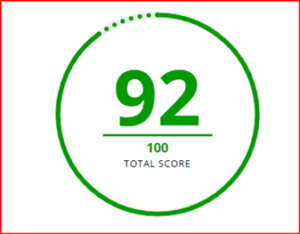FOR IMMEDIATE RELEASE: September 12, 2023
New law, already funded by the state’s new two-year budget, claims national gold standard for election data
Washington, D.C. – The Ohio General Assembly continues its consideration of landmark legislation to bring first-in-the-nation transparency, retention, and standardization to Ohio elections.
Sponsored by Sen. Theresa Gavarone (R) and championed by Secretary of State Frank LaRose, the Data Analysis Transparency Archive (DATA) Act was approved by the Senate in May and now awaits further consideration by the House.
Importantly, the General Assembly included DATA Act funding in the state’s new biennial operating budget, which was signed by Gov. Mike DeWine in July.
Secretary of State LaRose immediately announced the bill’s implementation, specifically the creation of a new Office of Data Analytics and Archives within the Office of the Secretary of State.
National Chairman of the Election Transparency Initiative and former Virginia Attorney General Ken Cuccinelli issued the following statement:
“We want to thank the General Assembly, Secretary of State LaRose, Governor DeWine, Senator Gavarone, and the bill’s champions for making this Election Integrity game-changer a reality for Ohio. Without clear and consistent post-election requirements for standardized electronic records retention, election data often has been discarded without being archived. The DATA Act rightly ensures transparency and confidence voters deserve and prevents confusion for anyone trying to effectively analyze election results. Without delay, we urge the House to continue advancing this landmark legislation so that funding for the Office of Data Analytics and Archives is mandatory now and in the future.”
Gina Swoboda, Executive Director of the Voter Reference Foundation, issued the following statement:
“Secretary of State LaRose and his team are setting the gold standard for archiving data and providing transparency to the public. According to the Voter Reference Foundation’s scorecard, the DATA Act increases Ohio’s data transparency score by 8 points, bringing the state’s total score to 92. Now fully funded, we encourage the House to pass this critical legislation and to give the Office of Data Analytics and Archives the permanence, durability, and certainty voters deserve.”
The Voter Reference Foundation Data Transparency Scorecard indicates the DATA Act has elevated Ohio from an 84 to a 92.

The DATA Act’s Four Primary Components:
DATA: States have generally failed to adopt consistent definitions of digital election data, leading to confusing and often conflicting auditing outcomes. The DATA Act codifies standard definitions of key election data points so post-election results can be analyzed more accurately.
ANALYSIS: The DATA Act creates a centralized Office of Data Analytics and Archives within the Office of the Secretary of State that can serve as a clearinghouse for the retention and review of electronic election records.
TRANSPARENCY: The DATA Act helps build trust in democracy by crowdsourcing and platforming election data for public scrutiny. The newly created Office of Data Analytics and Archives will publish election data online, both following an election for auditing purposes and over time for comparative analysis year-over-year.
ARCHIVE: The DATA Act codifies a process by which election data – local, state, and federal – must be transferred to the Secretary of State’s Office of Data Analytics and Archives for retention and public disclosure.
The Election Transparency Initiative, a partnership between the American Principles Project (APP) and Susan B. Anthony (SBA) Pro-Life America, was organized to combat federal H.R. 1 and H.R. 4 legislation and advocate for state-based election reforms that voters can trust.
The Voter Reference Foundation is dedicated to ensuring transparent, accurate and fair elections in the United States by providing public access to official government data pertaining to elections, including voter registration rolls, with a goal of encouraging greater voter participation in all fifty states.
###

